Archive
Posts Tagged ‘trustworthy behavior’
Are your actions ethical? What impact are they having on others? Is unethical behavior just “business as usual?”
I recently followed a LinkedIn group thread containing the following discussion topic: In the personal life of an ethics professional, do the same standards apply as in their professional life? A debate ensued, with many taking the position that “it was just a job” no different than any other profession. In other words, “all bets were off” outside the office. As disappointing as this might seem, it was not particularly surprising. I see similar attitudes and behavior among trust professionals. Maybe we all need an occasional reminder of what makes for ethical and trustworthy behavior, both in and outside the office. Here are a few thoughts taken from real-life examples:
- Lose your “me first” attitude.
- Stop belittling others.
- Don’t claim honors and awards that you did not earn.
- Don’t make “side deals.”
- Do your own “dirty work.” Don’t send a soldier to do it for you.
- Don’t help yourself to the copyrighted content of others without asking.
- Leave your ego at the door. You may not be the smartest person in the room.
- Tell the truth.
- Keep your word.
- If you are not sure your actions will be viewed as ethical or trustworthy, ask before proceeding.
I believe we all have a personal and professional obligation to hold ourselves to high standards, to be role models and to exhibit integrity and character. We have an obligation to walk our talk. We have an obligation to lead with trust. Stop and consider whether your actions are ethical and the impact they will have on others. A lack of trust and ethics should not be viewed as “business as usual.” It’s just bad business.
For more information about organizational trust, please visit our website at www.trustacrossamerica.com You may also be interested in our new book, Trust Inc.: Strategies for Building Your Company’s Most Valuable Asset
What are some additional trust busters that you would like to see added to this list? Feel free to leave a comment!
Barbara Brooks Kimmel, Executive Director, Trust Across America-Trust Around the World
Building organizational trust requires leadership “buy-in.” The payoff includes a happier and more stable work force; faster decision making and innovation; and long-term sustainability and profitability.
This list compiles some of the myths surrounding organizational trust and leadership.
- Trust is “soft” and does not increase profitability.
- If an organization complies with the law, it is trustworthy.
- Leaders need not have integrity in their personal life as long as they act the part at work.
- Writing a corporate values statement or having a credo is a waste of time and resources.
- Building trust into the corporate DNA will not result in faster crisis recovery.
- Short-term profitability trumps long-term trustworthiness.
- It’s not leader’s job to ensure that trust-building is an organizational priority.
- Shareholders are more important than other stakeholders.
- Corporate responsibility need not extend beyond philanthropy.
- It’s okay to tell an occasional lie.
What myths would you add to this list? Leave a comment.
These myths and other are discussed in our new book, Trust Inc. Strategies for Building Your Company’s Most Valuable Asset.
February is Leadership Transformation Month
according to Trust Across America’s
2014 Calendar
Productivity and execution begin when the leader creates a set of values and goals that are shared, accepted and adopted by all stakeholders.
Leaders must regularly communicate with stakeholders about the steps being taken to build trustworthy behavior within the organization.
Leaders must not confuse trust with compliance. The latter is situational. The former is not!
During the 52 weeks of 2014 you can build trust in your organization by thinking about, discussing and following the advice of the experts. Here are the suggestions for the 4 weeks in February 2014.
Week 1: A person “like yourself” is now trusted nearly two times as much as a CEO or government official. Ben Boyd, Edelman
Week 2: When deciding whom to trust remember this, people who will lie for you will lie to you. Lea Brovedani
Week 3: When I trust you, I empower you to influence me. Elaine Cohen, Beyond Business Ltd.
Week 4: When achieved, organizational trust is validated externally in corporate reputation and performance. Mark Coleman, Convergence Mitigation Management
Please share your comments and suggestions! Email: barbara@trustacrossamerica.com
Barbara Brooks Kimmel, Executive Director, Trust Across America – Trust Around the World
Editor Trust Inc. Strategies for Building Your Company’s Most Valuable Asset
Why does corporate America continue to turn a deaf ear when profitability need not be sacrificed in the name of trust?
The daily headlines are packed with stories about ongoing distrust in business, and rarely do we see indications that the tide is shifting. Perhaps it’s because business leaders continue to question the relationship between trust and profitability. We’ve aggregated recent data in this article, thereby making The Case for Trust more difficult to ignore.
The Hard Costs of Low Trust
- Gallup’s research (2011) places 71% percent of U.S. workers as either not engaged or actively disengaged.
- The price tag of disengagement (Gallup) is $350 billion a year. That roughly approximates the annual combined revenue of Apple, General Motors and General Electric.
- The Washington Post reported that “the federal government imposed an estimated $216 billion in regulatory costs on the economy (in 2012), nearly double its previous record.”
- The cost of the tort litigation system alone in the United States is over $250 billion. – or 2% of GDP (Forbes, January 2012)
- The six biggest U.S. banks, led by JP Morgan Chase & Co. and Bank of America Corp. have piled up $103 billion in legal costs since the financial crisis (Bloomberg, August 2013)
- According to The Economist Intelligence Unit (2010), 84% of senior leaders say disengaged employees are considered one of the biggest threats facing their business. However, only 12% of them reported doing anything about this problem.
- According to Edelman globally, 50% of consumers trust businesses, but just 18% trust business leadership.
- And finally, in the United States, the statistics are similar, but the story is a bit worse for leadership. While 50% of U.S. consumers trust businesses, just 15% trust business leadership.
This trust gap negatively impacts a company’s revenue, market share, brand reputation, employee engagement and turnover, stock price, and bottom line profitability.
The Low Cost of Hard Trust
Building a trustworthy business will improve a company’s profitability and organizational sustainability.
A growing body of evidence shows increasing correlation between trustworthiness and superior financial performance. Over the past decade, a series of qualitative and quantitative studies have built a strong case for senior business leaders to place building trust among stakeholders high on their priority list. While none of these studies are perfect, over the next decade their results will be increasingly difficult to ignore.
In a Harvard Business School working paper from July 2013 called The Impact of Corporate Sustainability on Organizational Processes and Performance, Robert G. Eccles, Ioannis Ioannou, and George Serafeim provide evidence that High Sustainability companies (those integrating both environmental and social issues) significantly outperform their counterparts over the long-term, both in terms of stock market as well as accounting performance.
According to Fortune’s “100 Best Companies to Work For”, based on Great Place to Work Employee Surveys, best companies experience as much as 50% less turnover and Great Workplaces perform more than 2X better than the general market (Source: Russell Investment Group)
Forbes and GMI Ratings have produced the “Most Trustworthy Companies” list for the past six years. They examine over 8,000 firms traded on U.S. stock exchanges using forensic accounting measures. The conclusions they draw are:
- “… the cost of capital of the most trustworthy companies is lower …”
- “… outperform their peers over the long run …”
- “… their risk of negative events is minimized …”
FACTS®. After years of reviewing such studies and vetting independent data providers, Trust Across America – Trust Around the World (TAA-TAW) has been blending five indicators of trustworthy business in its unique FACTS® Framework: Financial Stability, Accounting Integrity, Corporate Governance, Transparency, and Sustainability
The FACTS monthly (rebalanced) portfolio of 25 trustworthy companies significantly outperformed the S&P 500 index (64.3% vs. 30.9% from August 2012 through November 2013).
Numerous indirect indicators of trust also show a direct correlation to superior financial performance.
From Deutsche Bank:
- 100% concurrence on Lower Cost of Capital
(“… academic studies agree that companies with high ratings for CSR (corporate social responsibility) and ESG (environment, social responsibility, governance) factors have a lower cost of capital in terms of debt (loans and bonds) and equity.”) - 89% concurrence on Superior Market Performance
(“,,,studies indicate companies with high ratings for ESG factors outperform market-based indices”) - 85% concurrence on Greater Performance on Accounting –Based Standards
(“… studies reveal these types of company’s consistently outperform their rivals on accounting-based criteria.”)
From Global Alliance for Banking on Values, which compared values-based and sustainable banks to their big-bank rivals and found:
- 7% higher Return on Equity for values-based banks
(7.1% ROE compared to 6.6% for big banks). - 51% higher Return On Assets for sustainable banks
(.50% average ROA for sustainable banks compared to big bank earning 0.33%)
These studies are bolstered by analyses from dozens of other respected sources including the American Association of Individual Investors, the Dutch University of Maastricht, Erasmus University, and Harvard Business Review.
Business leaders may choose to continue to challenge the business case for trust but the evidence is mounting. There is not only a business case but also a financial case for trust. Trust works.
Barbara Brooks Kimmel is Cofounder and Executive Director of Trust Across America –Trust Around the World and editor of Trust Inc. Strategies for Building Your Company’s Most Valuable Asset. In 2012 Barbara was named one of “25 Women who are Changing the World” by Good Business International. For more information, please contact: mailto:Barbara@trustacrossamerica.com
Copyright © 2014 Next Decade, Inc.
Would you like to help us build our Case for Trust? Enter our Case for Trust Challenge!
2013 represented a pivotal year for our program.
Perhaps we have finally pushed the proverbial trust “boulder” to the top of the hill!
Highlights from the first year of our Campaign for Trust included:
Changing our name to Trust Across America – Trust Around the World, reflecting our global membership and presence.
Initiating the following programs:
- Launched our Alliance and issued our first press release
- Published the first 2 editions of the Directory of Trustworthy Business Experts
- Filmed the first round of our Trust Talks Video Series
- Initiatied our Series of Building Trust Reports
- Crowd-sourced the Building Trust in Community Leadership Report
- Brought our Alliance Members together to create Trust Workshops
- Announced the first round of our Case for Trust Challenge
- Held two Trust Breakfast Roundtables in NYC at the CFA Institute and Edelman
- Published our Trust Bibliography
- Published Trust Inc., Strategies for Building Your Company’s Most Valuable Asset
What’s coming up in January?
We started the year with a great writeup in Investor’s Daily
We will announce our 2014 4th Annual Top 1oo Thought Leaders on Jan 14
We will be holding a planning retreat on Jan 17 (more info following meeting)
Let’s make 2014 the Year of Convening and Collaborating!
Suggestions, comments or questions?
Please contact me, Barbara Kimmel, Executive Director barbara@trustacrossamerica.com
January is Trustworthy Leadership Month
according to Trust Across America’s
2014 Calendar
A culture of trust cannot exist with an untrustworthy leader.
Trustworthy behavior must start at the top and flow down through every manager in any organization.
Over the next 52 weeks, you can build trust in your organization by thinking about, discussing and following the advice of the experts. These are the suggestions for the 5 weeks in January.
Week 1: Cultivate trust by deepening the conversation. Patricia Aburdene @PatriciaAburdene
Week 2: Employees learn to trust when leaders provide adequate information about decisions they’re making. Andy Atkins @InteractionAsc
Week 3: What new or enhanced behaviors will you commit to practice to engender trust? William Benner wwconsult.us
Week 4: Without trust, people give up on relationships and leave organizations. Ken Blanchard @KenBlanchard
Week 5: Trust, like culture, begins and ends at the very top. Andrea Bonime-Blanc @GlobalEthicist
Please share your comments and suggestions! Email: barbara@trustacrossamerica.com
Barbara Brooks Kimmel, Executive Director, Trust Across America – Trust Around the World
Editor Trust Inc. Strategies for Building Your Company’s Most Valuable Asset
How does one say “Thank you” to friends and colleagues who have helped foster trustworthy relationships?
We hope you enjoy our 2014 Weekly Reflections on Organizational Trust, another collaborative effort of the contributors to our new book Trust Inc., our Alliance of Trustworthy Business Experts, and friends of Trust Across America – Trust Around the World. (Listed alphabetically)
If you are receiving this gift, we know that trust is important to you, and we hope you will share it with your audience.
Thank you to all who have assisted Trust Across America – Trust Around the World in building organizational trust.
May we continue to make progress in 2014.
With much gratitude and trust!
Barbara Brooks Kimmel
PS- This poster prints 11×14.
Has the time come for a
Revolution
in Leadership?
Become a Trust “VIP”
Values– define and communicate your values
Integrity- be honest and moral in your relationships
Promises- be accountable and deliver on all promises, small or large
VALUES INTEGRITY PROMISES
Come join us as we make 2014 the year of Trustworthy Leadership.
Barbara Kimmel, Executive Director, Trust Across America – Trust Around the World
Editor: Trust Inc. Strategies for Building Your Company’s Most Valuable Asset
How often does your phone ring with a “mystery set of letters” showing up on caller ID?
Logic would dictate that a non-profit that relies on voluntary donations would “get” the value of leading with trust. But apparently “trust” has become such a “yesterday” word, that even charities are choosing a different path.
Let me explain what has led me to this conclusion.
Almost every day, without fail, our home phone rings with the following caller ID “LFA Pickup Service.” Who is LFA? The Lupus Foundation. No matter how many times I ignore them, they just keep calling.
This morning a new caller rang in. This one simply read “MOD.” I answered the phone, and the caller, after mispronouncing my name, identified herself as a solicitor for the March of Dimes. When I asked to be removed from this duplicitous calling list, I was told “no go” unless I verified certain information.
I would like to meet the marketing “team” at these organizations who decided on this approach as a strategy. I would like to know how trust fell out of favor at these charities. I would like to know whether this deceptive and unethical practice is leading to a higher level of donations. But most of all, I would like these untrustworthy organizations and others who use the same tactics to stop the intrusion.
Shame on the Lupus Foundation and the March of Dimes, and all other non-profits who don’t lead with trust. When did your culture implode? Have your leaders lost their way?
Does anyone know the CEO’s of these two organizations? Send me their name and address. I’ll be glad to provide them with an autographed copy of our new book, Trust Inc. (and a request to be taken off their calling list until they choose to lead with trust.)
Barbara Brooks Kimmel is the Executive Director of Trust Across America – Trust Around the World whose mission is to help build organizational trust.

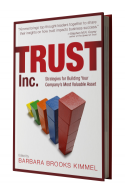
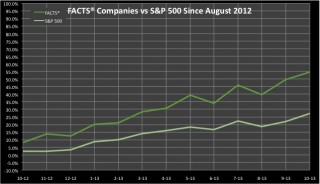
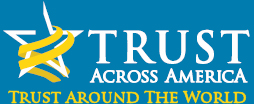
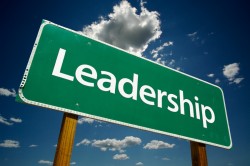
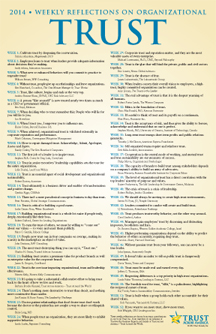

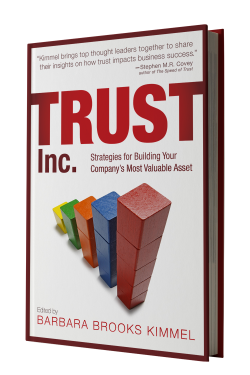

Recent Comments